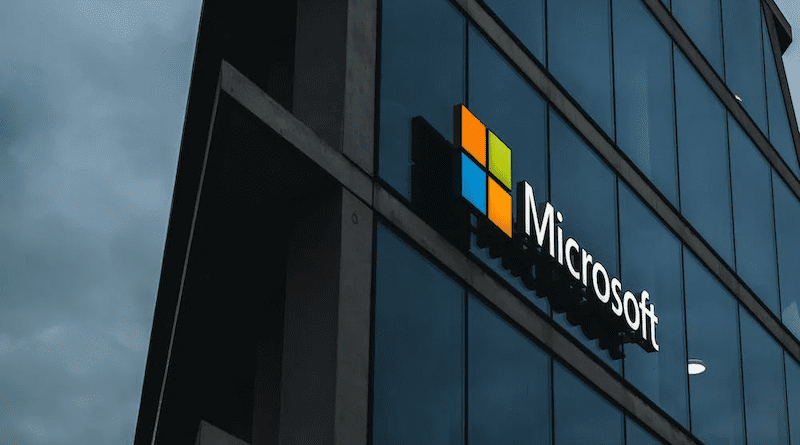EU Approves Microsoft-Activision Merger, At Odds With UK, US Regulators
By EurActiv
By Molly Killeen
(EurActiv) — The EU antitrust authorities have approved Microsoft’s proposed acquisition of gaming company Activision Blizzard just weeks after regulators in London blocked Microsoft’s biggest takeover to date.
The decision follows a lengthy investigation into whether the merger would threaten competition in the gaming market, particularly concerning access to Activision’s flagship franchise, Call of Duty.
Microsoft has made several moves to allay Brussels’ concerns over the deal, and the European Commission said on Monday (15 May) commitments made by the company had fully addressed the regulator’s initial concerns.
The $69 billion acquisition is set to be Microsoft’s largest to date, also making the tech giant one of the largest gaming companies by revenue.
Microsofts’ efforts, however, failed to satisfy authorities on the other side of the Channel, where the UK’s Competition and Markets Authority (CMA) rejected Microsoft’s proposed solutions in April and blocked the acquisition.
The EU’s competition chief Margrethe Vestager said the decision “represents an important step in this direction by bringing Activision’s popular games to many more devices and consumers than before, thanks to cloud game streaming”.
“The commitments offered by Microsoft will enable for the first time the streaming of such games in any cloud game streaming services, enhancing competition and opportunities for growth.”
The EU decision
The Commission launched an in-depth investigation into the deal last November after an initial assessment found that it could pose a threat to competition in both the distribution of games via cloud streaming services and the supply of PC operating systems.
In particular, the EU competition authority worried that if Microsoft were to make Activision’s games exclusive to its own cloud game streaming service, it would reduce competition in this area and strengthen the position of Windows amongst PC operating systems.
Amid the expanded enquiry, the tech giant moved to assuage the EU’s fears, signing decade-long deals with rival gaming companies such as Nintendo and Nvidia to guarantee their continued and equal access to titles such as Call of Duty, should the deal go ahead.
Microsoft also offered some commitments in response to the EU executive’s investigation, including decade-long pledges to offer free licenses to consumers in the European Economic Area (EEA) and to cloud game streaming service providers offering Activision games to EEA-based users.
The Commission found these commitments to represent a “significant improvement” on the current situation for cloud gaming and to indicate that the deal no longer poses a threat to competition, clearing the way for approval on Monday.
Activision CEO Bobby Kotick said the company intends to “meaningfully expand investment and workforce throughout the EU, and we’re excited for the benefits our transaction brings to players in Europe and around the world”.
“Europe has played a pivotal role in the development of gaming, especially mobile gaming, and we expect European game developers will continue to drive growth and innovation,” he added.
Microsoft President Brad Smith said the EU decision “required Microsoft to license popular Activision Blizzard games automatically to competing cloud gaming services. This will apply globally and will empower millions of consumers worldwide to play these games on any device they choose”.
The UK reaction
The UK authority, the CMA, concluded its investigation in late April with a ruling contrary to Brussels’.
In preliminary findings published earlier this year, the watchdog warned that the proposed acquisition could harm competition across several markets, including gaming hardware and software, and that it would be in Microsoft’s commercial interest to make Activision’s products exclusive to its cloud service.
The proposed behavioural remedies submitted by Microsoft in response were found to contain significant shortcomings, and the regulator ultimately opted to reject the deal, a move described by the tech giant as “a disservice to UK citizens”.
Both companies involved have pledged to appeal the CMA’s decision. In early May, the CMA issued an interim order on the deal, preventing Microsoft and Activision from acquiring an interest in the other or its subsidiaries without prior written consent.
In response to Brussels’ approval of the deal, the CMA said it stood by its decision.
“Microsoft’s proposals, accepted by the European Commission today, would allow Microsoft to set the terms and conditions for this market for the next 10 years,” the watchdog said in a statement.
“They would replace a free, open and competitive market with one subject to ongoing regulation of the games Microsoft sells, the platforms to which it sells them, and the conditions of sale,” it added, noting that “this is one of the reasons the CMA’s independent panel group rejected Microsoft’s proposals and prevented this deal.”
The deal is also under scrutiny in the US, where the Federal Trade Commission (FTC) has already moved to block the deal, issuing a December complaint pointing to Microsoft’s “record of acquiring and using valuable gaming content to suppress competition from rival consoles”.
An FTC hearing on the merger proposal is scheduled for 2 August.

